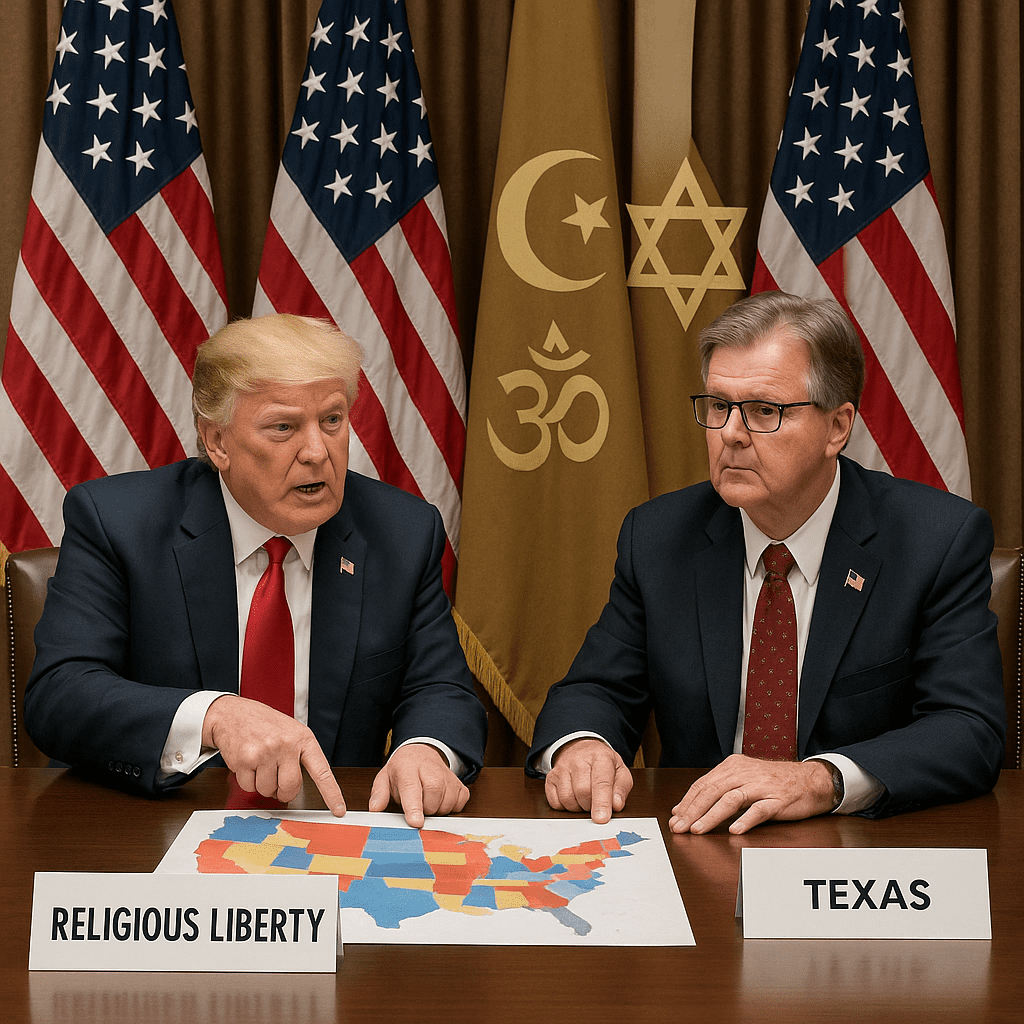On May 1, 2025, President Donald Trump signed an executive order to establish the Religious Liberty Commission, a body dedicated to investigating and promoting policies that protect religious freedom across the United States. This initiative underscores the administration’s commitment to upholding the rights of faith-based communities and ensuring their voices are heard in the public sphere.
The commission is chaired by Texas Lieutenant Governor Dan Patrick and includes notable figures such as Dr. Ben Carson, Dr. Phil McGraw, and Pastor Paula White. Their collective expertise is expected to guide the commission in identifying potential threats to religious liberty and proposing strategies to address them. The commission’s mandate is set to conclude on July 4, 2026, unless extended by the President.
The establishment of this commission aligns with the administration’s broader efforts to reinforce the role of religion in American public life. By creating a platform for faith leaders and legal experts to collaborate, the administration aims to foster a more inclusive environment where religious beliefs are respected and protected.
Critics have raised concerns about the commission’s composition, noting a predominance of evangelical Christian representation. Some argue that this focus may inadvertently overlook the diverse religious landscape of the nation. However, the administration maintains that the commission’s work will benefit all faith communities by promoting a universal standard of religious freedom.
The commission’s tasks include producing a comprehensive report on the foundations of religious liberty in the U.S., identifying current threats, and offering recommendations to support peaceful religious pluralism. These objectives are designed to ensure that religious groups can practice their faith without undue interference.
While the commission’s formation is a significant step toward protecting religious rights, its effectiveness will depend on the implementation of its recommendations. Ensuring that the commission has adequate resources and support will be crucial in achieving its goals.
In the coming months, the commission is expected to hold public hearings and engage with various stakeholders to gather insights and perspectives. This inclusive approach aims to create a balanced and informed framework for addressing religious liberty issues.
As the commission begins its work, it is anticipated that some challenges may arise, particularly in balancing the interests of different faith groups. However, with time and dedicated effort, the commission is poised to make meaningful contributions to the preservation and promotion of religious freedom in the United States.
—
Julie Harris covers faith, family, and values-based policy. She holds a journalism degree from Hillsdale College and began her reporting career covering religious liberty cases at the state level. With a strong grounding in moral philosophy and cultural reporting, she brings depth and clarity to complex legislative debates surrounding life and faith.



